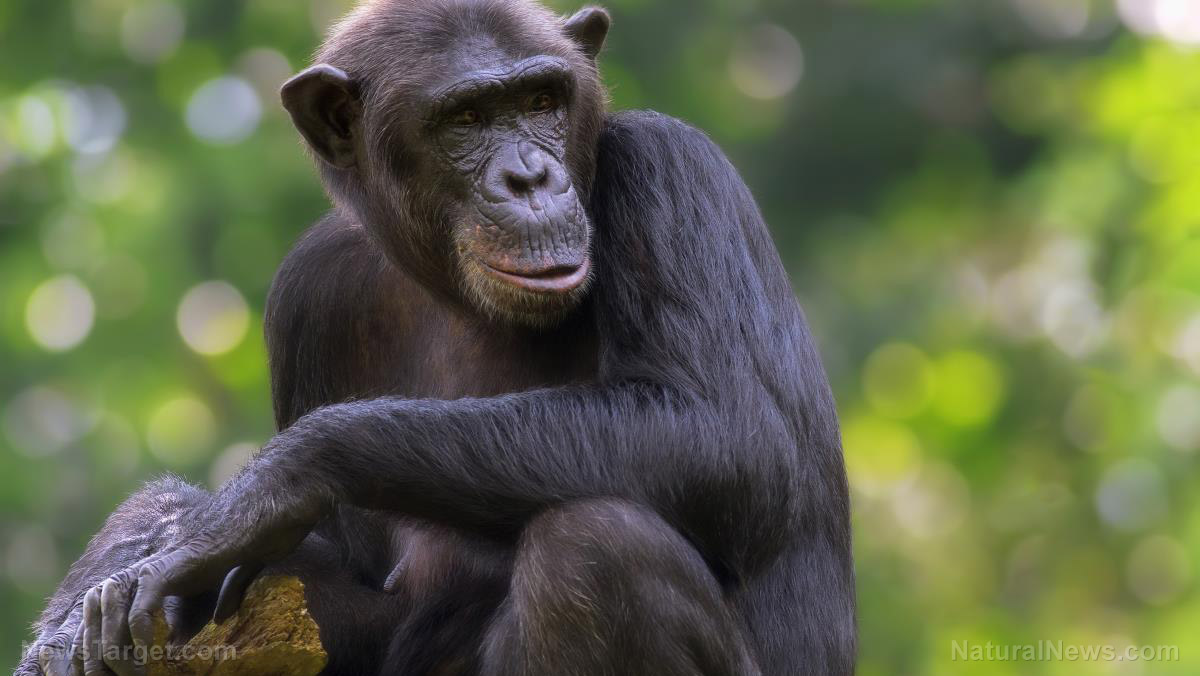Chimpanzees observed by scientists are changing their hunting behavior because they know they’re being watched
06/27/2017 / By Jhoanna Robinson

Researchers at the University of St Andrews in Scotland have observed that two chimpanzee communities in the Budongo Forest in Uganda have vastly different ways of hunting and sharing the meat of the prey that they hunted. The scientists concluded that the difference in hunting styles has something to do with the presence or non-presence of human activity within their immediate vicinity, and how they as a community have adjusted to this change. (Related: Chimpanzees found to give birth in much the same way as humans)
“The differences in hunting between these communities are dramatic – so we wanted to try to understand why. They live in the same forest and have access to the same prey, but they hunt for different species and seem to share food differently,” lead researcher Dr. Catherine Hobaiter said.
The Sonso community, which has been observed by scientists for 27 years now, have supposedly adjusted to a life viewed by humans. “For Sonso – most of the current generation of adults were born with us being there, so they’re really incredibly relaxed about our presence,” Hobaiter said.
However, Hobaiter said that it might take a while before chimpanzees in the Waibira community — who have been studied for just six years — get used to the presence of people in their natural habitat. “[For] Waibira – some of the young ones have started to grow up and become very comfortable with us, but some of the adults would be 30-40 years old when we started, and five years of us following them round is a fraction of their lifetime.”
The Sonso community were observed to hunt black and white colobus monkeys. The carcasses of the monkeys that were caught and killed were kept by the high-ranking male members of the tribe, even if they weren’t the ones who caught and killed the game. Other members of the community have to beg for their share.
Meanwhile, monkeys from the Waibira community were not that picky when it came to their prey – they hunted both colobus monkeys and duiker, which is a kind of antelope. They might have adapted to more “opportunistic” ways of hunting because they were much less used to the presence of human scientists and therefore have become wary, Hobaiter said.
Hobaiter said the presence of humans in the chimpanzees’ communities truly have long-lasting effects to their way of living. “Long-term research with wild chimpanzees brings real conservation benefits, but we have to remember that our presence can affect their behavior; in this case the group hunting used to catch colobus monkeys may take years to re-establish. Part of our work is to understand what our impact is and try to minimize it.”
Hobaiter said that with the modern technology that is available to scientists, documenting the lives of other species would be a piece of cake. “We can do amazing things with camera traps, remote microphones, and drones – it’s getting much easier to get good quality data. But we need to ask – should we go in there [to follow the chimps]?”
Read more stories like this at Scientific.news.
Sources include:
Tagged Under: adaptation, chimpanzees, research, Sonso, Waibira




















